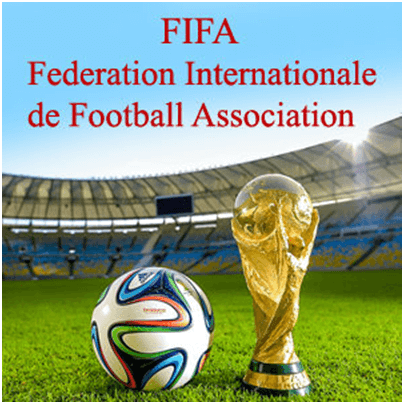What is the full form of FIFAFIFA: Federation Internationale de Football AssociationFIFA stands for "Federation Internationale de Football Association" in French. In English, it is known as the International Federation of Association Football. 
FIFA is an international governing body that governs, manages, and promotes association football, futsal, and beach soccer. It is responsible for organizing all major football tournaments like Football World Cup (FIFA World Cup) and FIFA Women's World Cup. Since 1930, it has been organizing FIFA World Cup, and since 1991, it has been organizing the Women's World Cup. FIFA was founded on 21 May 1904; Belgium, France, Denmark, Netherlands, Sweden, Spain, and Switzerland were the founding members of FIFA. Its goal is the constant improvement of football. It is headquartered in Zurich and is governed by Swiss law; 211 national associations are members of FIFA. As of July 2017, Gianni Infantino is the president of FIFA. FIFA also publishes a monthly magazine by the name of FIFA 1904. It is published as both a print edition and a free online version. The magazine comprises 68 pages that contain in-depth interviews and stories related to football from all over the world, but its main focus is on FIFA's projects and activities, events, competitions, and member associations. The print version is available for free to all confederations and member associations of FIFA. The online version is available for free to all football fans on FIFA.com. Furthermore, FIFA has an independent Ethics Committee for investigating possible infringements of the FIFA Code of Ethics. In 2012, it was divided into two separate chambers: the investigatory chamber and the adjudicatory chamber. The Code of Ethics of FIFA provides the basis for all of the proceedings and decisions of the Ethics Committee. Men's FIFA World Cup Winners:
The History of FIFAIn response to the increased interest in football in Europe around the start of the 20th century, FIFA was established. Frenchman Robert Guerin, who was also the head of the French Football Federation, served as the group's first president. In its early years, FIFA's primary responsibility was to plan international competitions like the Olympic football tournament. FIFA's remit has grown throughout time to encompass the global growth and regulation of sport. The first set of international football regulations and the first World Cup competition were both established in 1930 by FIFA. Since then, the World Cup has developed into the most renowned and popular athletic event in the world. FIFA OrganizationFIFA is governed by a President who is chosen by the FIFA Congress to serve a four-year term. Gianni Infantino, who was chosen as FIFA's President in 2016, is in office at the moment. The top legislative body of FIFA, the FIFA Congress, convenes once every four years to elect the organization's president and ratify modifications to FIFA's constitution. Six confederations make up FIFA, each of which is in charge of planning and governing football in its local region. The associations are:
The Obligations of FIFAFIFA is responsible for a number of significant tasks, including:
Challenges and DisputationsFIFA has endured a great deal of controversy and difficulty throughout its existence, despite its many successes. The most prominent ones are as follows:
FIFA has taken action to address some of these problems in recent years. For instance, the organization has changed its governance structure, establishing an independent ethics committee as part of the changes. As part of its commitment to enhancing working conditions for those engaged in the development of tournament infrastructure, FIFA has also introduced measures to encourage diversity and inclusion in football. ConclusionFIFA, the biggest sports organization in the world, was founded with the goal of advancing and promoting football on a worldwide scale. FIFA has, despite its many successes, had many problems and difficulties throughout its history, including allegations of corruption, inequity and discrimination, labor disputes, and issues with governance and transparency. FIFA has made significant progress in addressing these problems in recent years, but there is still much to be done. FIFA must continue to place a high priority on the principles of honor, respect, and fair play in order to maintain football's role as a force for good in society as it gains popularity around the globe.
Next TopicFull Form
|
 For Videos Join Our Youtube Channel: Join Now
For Videos Join Our Youtube Channel: Join Now
Feedback
- Send your Feedback to [email protected]
Help Others, Please Share










